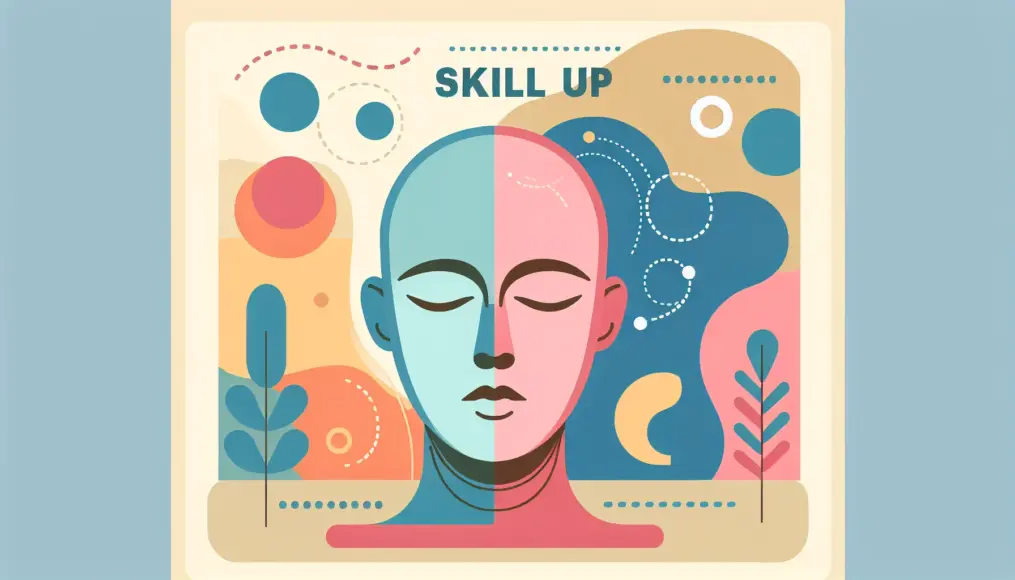A well-crafted resume is an essential tool in your job search arsenal. It allows you to organize your experience and skills effectively, showcasing what you bring to the table for your next career move. In this blog, we’ll explore how to write a compelling resume and make the most of vocational training to support your quest for career growth.
Vocational training, in particular, plays a crucial role in today’s business landscape. By acquiring new skills, you can enhance your resume and significantly increase your chances of landing that dream job. We encourage you to use this article as a reference to help you shape your career path.
- Understand the basic structure and content of a resume
- Learn the significance of vocational training and the importance of skill enhancement
- Discover how to write a resume by looking at successful examples
Understanding the Importance of a Resume: A Guide
A resume is a vital tool for reflecting on your professional journey and taking the next step in your career. In the job search process, it serves as an essential document for self-promotion, helping potential employers understand your experiences and skills. In this section, we’ll dive into the purpose and significance of a resume, as well as its fundamental structure and content—so be sure to take notes!
The Purpose and Importance of a Resume
The primary aim of a resume is to clearly present your past work experiences and skills. By doing this, employers can easily grasp the types of roles you’ve held and the capabilities you possess. Especially during a job search, your resume is the first step toward landing an interview.
Additionally, crafting a resume provides a great opportunity for self-reflection. By organizing your past experiences, you can see how you’ve grown over time, which can help you think about your future career plans.
- A resume is a crucial tool for self-promotion.
- Organizing past experiences deepens self-understanding.
- It serves as the first step toward successful job searching.
Basic Structure and Content
A resume typically includes several key components. You start with your personal information, followed by sections detailing your work experience, skills, and qualifications. Specifically, you should include descriptions of your job responsibilities, achievements, and any certifications you’ve earned.
It’s important for the content to be concise yet effectively showcase your strengths. Choosing a clear format will help create a resume that is easy for employers to read. This way, you’re more likely to receive a positive evaluation.
- Key components include personal information, work experience, and skills.
- Aim for concise and clear content.
- Highlighting your strengths is essential.
The Importance and Impact of Vocational Training
Vocational training is playing an increasingly vital role in today’s society. In a fast-changing business environment, acquiring new skills can significantly enhance your career prospects and job search efforts. In this section, we’ll delve into how vocational training can benefit you and the impact it can have on your skill development and career progression.
The Significance of Vocational Training in Modern Society
Vocational training goes beyond simply learning new skills. Particularly in our technology-driven world, there’s a constant need to acquire fresh knowledge. By participating in vocational training programs, you’ll be better equipped to respond to the latest industry trends and technologies, adding valuable new highlights to your resume.
Moreover, vocational training offers opportunities for personal growth. Facing new challenges allows you to test your abilities, which can boost your confidence. A commitment to lifelong learning is attractive to employers, making vocational training an essential step in broadening your career horizons.
- Vocational training provides opportunities to learn new skills
- Helps you stay updated with the latest industry trends
- An important step for personal growth and confidence
The Impact on Skill Development and Career Progression
Engaging in vocational training not only enhances your skills but also significantly influences your career trajectory. By mastering new competencies, you enrich your resume, giving you an edge in job searches. Holding specific certifications or specialized knowledge can set you apart from other candidates.
Additionally, the networks and connections you build through vocational training are invaluable. Meeting like-minded individuals and exchanging information can open doors to new opportunities. When these elements come together, they can lead to a richer and more fulfilling career.

If you’re curious about how to leverage the skills gained from vocational training on your resume, check out this article: “Keys to Job Transition Success! How to Write an Effective Motivation Letter.” This guide provides insights into crafting an impactful motivation letter, helping you showcase the results of your vocational training to their fullest potential.
- New skills enhance your resume
- Differentiate yourself with qualifications and specialized knowledge
- Networking creates new opportunities
Steps to Writing an Effective Resume
When crafting your resume, it’s essential to effectively organize your experiences and skills while clearly highlighting your strengths. In this section, we’ll delve into the steps for writing a compelling resume. Let’s ensure you convey your unique assets and create an appealing document that stands out to potential employers.
Organizing Your Work Experience Effectively
Start by organizing your work history. It’s a good idea to compile your previous positions, projects you’ve worked on, and qualifications in chronological order. Be specific about the roles you’ve played and the achievements you’ve attained in each position. This clarity will make a significant difference.
By going through this organization process, you’ll gain a clearer understanding of your career trajectory. It will also help you identify which experiences are most valuable for your next job opportunity. A well-organized resume will not only be easier to read but also more attractive to employers.
- Organize past jobs and projects chronologically
- Clearly detail your roles and achievements in each position
- Gain a better understanding of your career flow
Clarifying Your Key Selling Points
Next, it’s important to clarify your key selling points. Identify the aspects of your experience and skills that you want to emphasize the most. For instance, if you had a successful experience on a particular project or possess superior skills compared to others, make sure to highlight them effectively.
Using concrete numbers and results can make your selling points stand out in your resume. For example, mentioning that you “increased sales by 20%” or “completed a project three months ahead of schedule” creates a strong impact on potential employers.
- Highlight the experiences and skills you want to emphasize
- Use specific numbers and achievements for emphasis
- Aim for an impactful resume
Learning from Successful Resumes
A well-crafted resume plays a crucial role in any job search, but what does it take to create one that leads to success? In this section, we’ll explore the key characteristics of resumes from individuals who have successfully landed jobs, uncovering the secrets behind their achievements. We’ll also highlight common pitfalls and how to avoid them, providing you with valuable insights for your own resume writing.
Key Features of Resumes from Successful Job Seekers
Resumes of those who have successfully transitioned to new jobs share several common traits. First and foremost, these resumes are clear and well-organized, making them easy to read. They are structured in a way that highlights job responsibilities and achievements at a glance, drawing the employer’s interest right away.
Additionally, successful candidates effectively emphasize their key selling points. By including specific numbers and details about projects they’ve accomplished, they demonstrate their value in a compelling way. This not only sets them apart from other candidates but also helps their resumes leave a lasting impression on potential employers.
- Clear and easy-to-read structure
- Organized presentation of job responsibilities and achievements
- Specific emphasis on key selling points
Common Mistakes and How to Avoid Them
When writing a resume, there are a few common mistakes that can be easily avoided. One major issue is providing too much information. A resume should be concise, allowing employers to quickly grasp the necessary details. Overloading your resume with information can backfire, so it’s important to keep this in mind.
Another frequent mistake is a lack of strong self-promotion. If you fail to effectively communicate your strengths and accomplishments, you won’t stand out in the employer’s mind. Use concrete data and examples to clearly convey your value. By focusing on these aspects, you can significantly improve the quality of your resume.
- Too much information can be counterproductive
- Focus on concise, essential details
- Highlight your self-promotion with specific data
Conclusion
A well-crafted resume plays a crucial role in your job search. In this article, we’ve explored the basics of resume writing, how to leverage vocational training, and shared success stories to help you create an impactful resume. By organizing and showcasing your experiences and skills effectively, you’ll take a significant step toward a successful career transition.
When writing your resume, it’s essential to maintain a clear and readable structure while making your self-presentation specific and compelling. To avoid common pitfalls, make sure to present information concisely and highlight the key points that matter. Keep these tips in mind as you refine your resume.
- A resume is an indispensable tool for a successful job search
- Clear structure and specific self-presentation are key points
- Aim to avoid common mistakes and focus on effective information organization
Wishing you all the best in your job search! We hope you find this article helpful in crafting an outstanding resume. We’d love to hear about your experiences and thoughts in the comments!



Comment